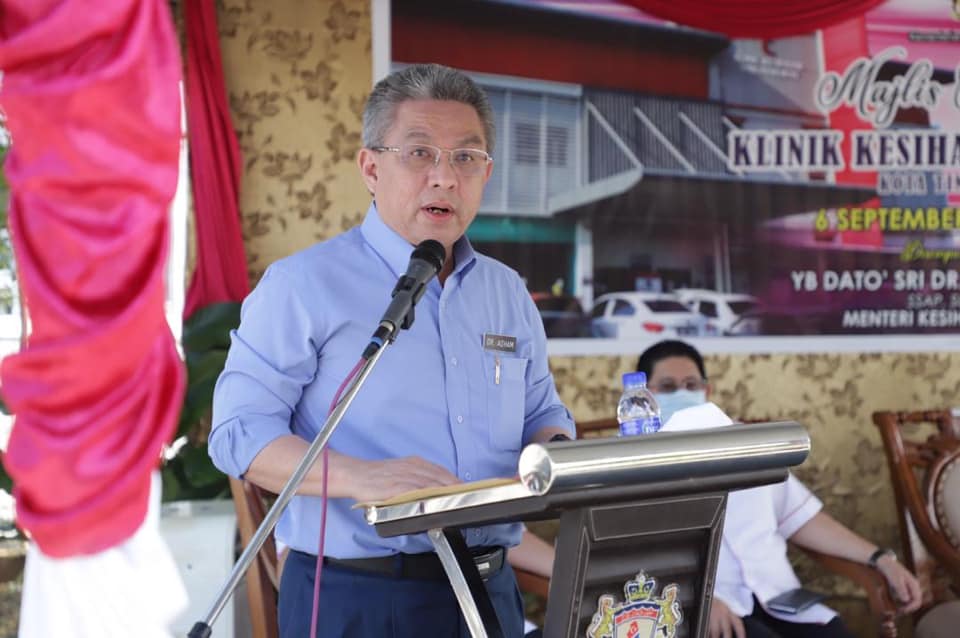KUALA LUMPUR, Sept 17 — Experts selected by the World Health Organization (WHO) made several positive findings about Malaysia’s health security system last year, besides recommending preparations for a flu pandemic, said Dr Adham Baba.
The health minister, in his written Dewan Negara reply on September 3, said the Joint External Evaluation (JEE) by WHO’s International Health Regulations (IHR) 2005 found that Malaysia has gradually strengthened its health security system, with a long-term vision, through Malaysia’s Strategy for Emerging Diseases and Public Health Emergencies (MySED) Workplan I and II.
WHO developed the IHR on global health security to ensure member states have the minimum capacity to detect, assess, report, and take action on any public health emergencies that occur at their respective levels.
“Malaysia underwent a JEE from October 21 to 25, 2019,” Dr Adham Baba told Senator Lee Tian Sing (MCA) in his Dewan Negara written reply on September 3.
Senator Lee had asked the health minister to state whether the Ministry of Health (MOH) will review the overall health system’s weaknesses, lack of equipment, and the readiness of the health sector in dealing with the sudden increase in patients, especially in an outbreak, and if the results of those studies will be presented at the Dewan Negara. The Covid-19 outbreak hit Malaysia in January this year.
Dr Adham stated that according to experts that carried out the JEE, it was highlighted that Malaysia has a clear mechanism in implementing directives, control, and coordination involving various sectors for preparedness and response activities.
“The Ministry of Health (MOH) through the National Crisis Preparedness and Response Centre (CPRC) provides a centre that plans preparedness activities, synthesises information, and coordinates responses at the health sector level,” the health minister said.
He said the JEE panel has also acknowledged the existence of a national surveillance system in Malaysia capable of synthesising data, which also enables “real-time” data entry at the district, state, or national level that allows appropriate risk assessments to be carried out.
“In turn, this will help with the process of decision making and risk communication involving top management,” Dr Adham said.
The health minister also said that through JEE, the team of experts has given several recommendations to be taken by Malaysia to make appropriate improvements.
The first recommendation given was to further improve Malaysia’s health security system with the guidance of the MySED work plan, besides reviewing stimulation exercises for large scale and high-impact incidents like an influenza pandemic.
Another recommendation given, according to Dr Adham, was to strengthen coordination stewardship, and accountability involving various related sectors to enable a more comprehensive implementation of IHR 2005 in Malaysia.
“This includes strengthening coordination between the human and animal health sector that complements each other in technical aspects,” Dr Adham said.
Dr Adham said JEE also recommended that Malaysia strengthen effective management programmes with the private sector for the country’s health security system, covering all aspects of surveillance, case management, risk communication as well as other preparedness and response activities.
Furthermore, the health minister said the experts also suggested for Malaysia to continuously share, at regional or international levels, its experience gained from the implementation of health security.
“This includes the contribution of its expertise in emergency operations, surveillance, laboratories, field epidemiology training, risk communication, and the ability to deal with chemical and radiation emergencies.”
WHO’s JEE for Malaysia, according to its website, looks at national legislation, policy and financing; IHR coordination, communication, and advocacy; antimicrobial resistance; zoonotic disease; food safety; biosafety and biosecurity; and immunisation. WHO hasn’t completed its JEE mission report for Malaysia yet.








